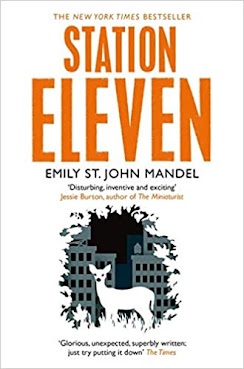Station Eleven
I almost put this aside after the first few pages because it wasn’t heading in the direction I’d thought it would head. A friend had recommended it because she knew I was looking for post-apocalypse stories. Yet how does it begin? With a world-famous actor dying of a heart attack on stage. What’s that got to do with the apocalypse, I thought?
My mistake. I thought I was going to be reading a variation on Stephen King’s The Stand. Both books begin with a flu virus culling most of the world’s population, but then they diverge. King’s book – one of my all-time favourites, by the way – develops into a struggle between Good and Evil in a deserted USA. Emily St John Mandel is after something different.
Slipping back and forth in time, and from character to character, Station Eleven builds a mosaic of life before and after the flu completely rewrites the rules on how we live. And that’s the key to the book, I think: how we live. What do we need? What’s important? What makes life worth living in the first place?
It’s never dull; at times I was turning the pages as fast as I could read to find what would happen next. Occasionally it’s violent. But it’s also quiet and contemplative and, above all, haunting. I really do mean that, because a week after finishing it I’m still thinking about it. About its characters and their travels, and its portrait of worlds – and ways of living - both old and new.
And above all, Station Eleven itself.



Comments
Post a Comment